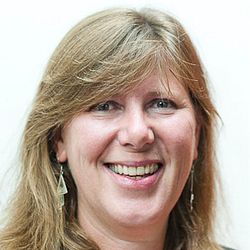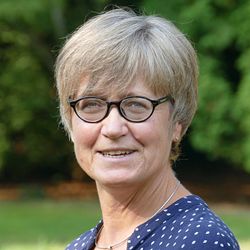Pressmeddelande -
North-South divide in science may hinder action on climate change
Northern domination of science relevant to climate-change policy and practice globally and lack of research led by Southern researchers in Southern countries may hinder development and implementation of global agreements and nationally-appropriate actions. These are the findings of an article just published in the international journal Nature Climate Change authored by ten of the World’s most eminent scientists from Southern countries in consort with researchers from Sweden and the UK. They go on to recommend a set of practical steps in both Northern and Southern countries for spanning the divide,identified specifically in relation to a wide range of actors at global, regional and national scales.
November saw World leaders meeting in Marrakech for the Conference of the Parties to the UN Framework Convention on Climate Change. The meeting sought to further implementation of last year’s Paris Agreement, which heralded a new bottom-up approach to the establishment of emission-reduction targets with countries providing their own Nationally Determined Contributions (NDCs). However, co-author Prof. Saleemul Huq from the International Centre for Climate Change & Development in Bangladesh and a leading member of the Intergovernmental Panel on Climate Change (IPCC) says that, as a consequence of the divide “Southern countries may have limited ability, on the one hand, to pose evidence-based questions as to whether Northern NDCs are equitable and, on the other hand, to accept positions put forward by Northern countries and justified by Northern research that Southern countries may perceive as biased towards Northern countries’ vested interests”.
Richard Smithers from Ricardo Energy & Environment, one of two lead authors and an expert in national adaptation planning, is particularly concerned that Southern countries do not have the science base to respond to climate change: “Understanding of local contexts is facilitated when research is led by researchers from a country relevant to the investigation. This may be essential if scientific outputs are to be viewed as having been generated inclusively and as reflective of socio-political and cultural circumstances, thereby encouraging decision-makers to translate results into locally-sensitive policy and practice”.
The study’s senior author, Dr Grzegorz Mikusiński from the Swedish University of Agricultural Sciences, who has previously collaborated with Southern researchers in India and Nepal, notes that “Some of the practical steps are already being implemented to bridge the North-South divide in research in ways that can be built upon. But, despite efforts to address the problem, improvement in the situation has progressed in slow motion. So, we would advocate that the practical steps that we have identified should be comprehensively implemented in order to catalyse a paradigm shift from a northern-dominated research culture that underlies the divide to one that supports the equitable involvement of Southern researchers in scientific development”.
Dr Malgorzata Blicharska, lead author from the Natural Resources and Sustainable Development research group at Uppsala University further notes that “Ultimately, it should be borne in mind that Southern countries may have wider needs for socioeconomic support and development that present more fundamental limitations to countries’ abilities to engage meaningfully in scientific endeavour. As such, only the development of national capacity will eventually put the South on an equal footing with its Northern partners.”
Reference and link to article
Blicharska, M.; Smithers, R.J.; Kuchler, M.; Agrawal, G.K.; Gutiérrez, J.M.; Hassanali, A.; Huq, S.; Koller, S.H.; Marjit, S.; Mshinda, H.M.; Masjuki, H.H.; Solomons, N.W.; Van Staden, J. and Mikusiński, G. (2017). Steps to overcome the North-South divide in research relevant to climate-change policy and practice. Nature Climate Change 7. DOI: 10.1038/NCLIMATE3163
For more information please contact:
Grzegorz Mikusiński, Grzegorz.Mikusinski@slu.se, +46 70 7757 161
Malgorzata Blicharska, malgorzata.blicharska@geo.uu.se, +46 76 8226 616
Ämnen
Kategorier
Regioner
SLU:s vision: SLU är ett universitet i världsklass inom livs- och miljövetenskaper.







